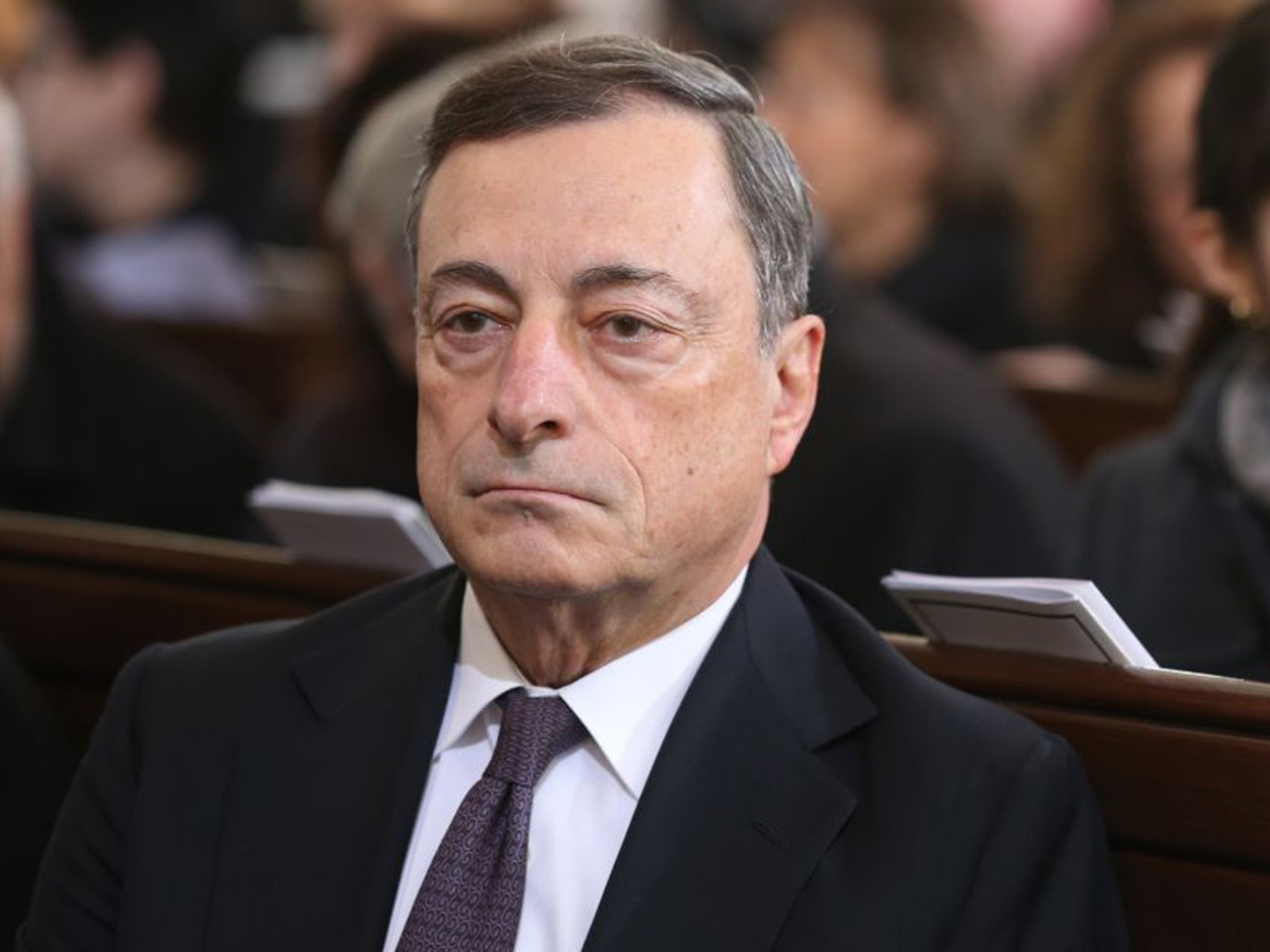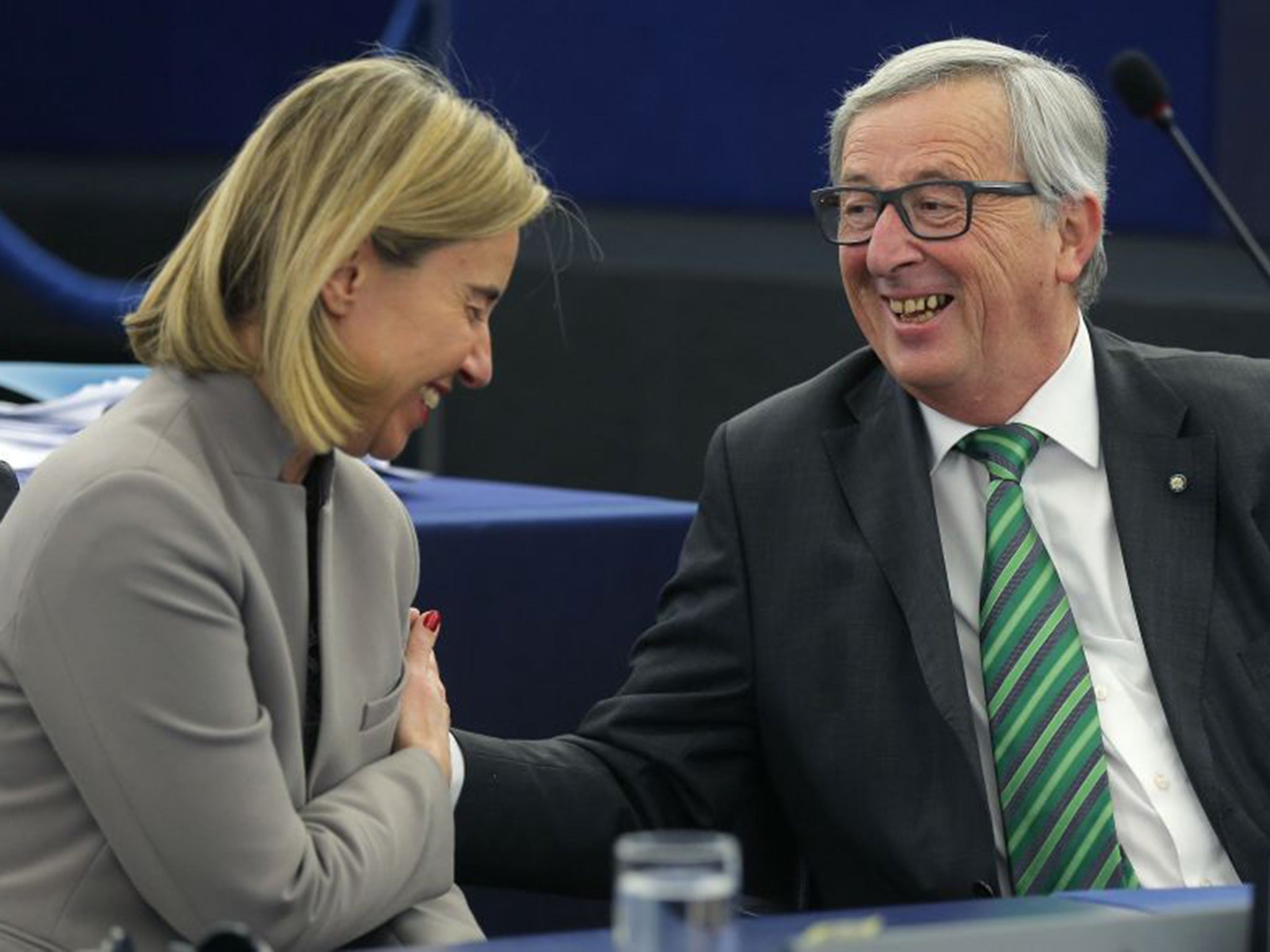Mario Draghi can’t perform miracles – but every little helps
The European Central Bank must do something big, but some eurozone problems are beyond its control

Next Thursday Mario Draghi, president of the European Central Bank (ECB), will announce another package of measures to try to boost the eurozone economy. There is as always a bout of speculation both as to the details of what will be announced and whether the measures are likely to be effective. Will there be a token interest rate cut, and, if so, is there any point in cutting them further when they are already close to zero and, in some instances, negative? There will be more Quantitative Easing, but would that have any effect on consumer inflation, or would it merely boost asset prices as it seems to have done already?
Beyond this is the argument that on purely economic grounds the ECB would be better to do nothing at all. Growth in most of the eurozone is at least positive, and two of the countries hardest hit since the great recession, Spain and Ireland, are now racing forward again. But the terrorist attacks will have inevitably undermined confidence, and in any case this is not just about economics. The ECB will do something substantial partly because Dr Draghi and other board members have hinted strongly in recent weeks that they would To build expectations and then disappoint would be a body-blow, while the fragility of Europe now requires that it does something pretty spectacular.
The ECB is the most respected of the European bodies. The euro retains popular support even in countries, such as Greece and Finland, whose economies still suffer. The refugee crisis and the terrorist attacks have of course undermined the Schengen Agreement on open borders, and that, with the euro itself, is one of the two pillars of the whole project. You don’t need to buy the line of the European Commission president, Jean-Claude Juncker, who told the parliament in Strasbourg last week “a single currency makes no sense if Schengen falls”, to understand the need to shore up the eurozone economy. Therefore the best hope of rallying support to the European flag lies with the ECB.

There is, however, a paradox here. The refugee crisis has undermined Schengen and may yet destroy it. Yet an ageing European population needs immigration if it is not to decline and its shrinking workforce become unable to meet the needs and provide the taxes to support an army of retirees. This is, however, a hard argument to get across and anyone trying to do so has to answer two questions: first, why do we need immigrants when so many of Europe’s young are unemployed? and second, do the immigrants have the skills to fill those jobs anyway?
There are solid answers to both. To the first, the problem is a combination of poor education and training and labour regulations that protect people in jobs at the cost of excluding those not in jobs, especially the young. To the second, it is that probably many of the immigrants and potential immigrants do not arrive with skills (there is a lot of concern about this in Germany at the moment), but there is the beacon of the United States economy that manages to train relatively low-skilled people to do jobs well.
No one doubts that there will have to be some limits to immigration into Europe, and there are great social and political problems associated with the integration of large numbers of people with different cultures. But from an economic perspective inward migration can give a boost, and Europe surely needs that right now. For all the concerns in the UK about inward migration, still running at record levels, we would not be the fastest-growing of the major economies without it.
If the need for faster growth in Europe is the backcloth to the ECB announcement this week, and the ECB is the most-respected EU institution, to what extent can it deliver?
Well, we are going to see a test of the limits of monetary policy. The accelerator will be on the floor. Will the wheezing engine perk up a bit? It is a huge generalisation but my guess is it will – a bit. Or rather the response will be uneven. In parts of Europe there will be a prod towards greater growth, but those will be the regions that are already doing better.
The eurozone as a whole has underperformed vis-à-vis the rest of the region, but within the eurozone there are bright spots. Aside from Ireland and Spain, noted above, there is good growth in the Baltic states, Slovakia, Slovenia, Luxembourg and Malta. The trouble is partly that, with the exception of Spain, they are too small to lift the eurozone much, while Europe needs structural reforms, in particular to get its unemployed youth back to work, not just a monetary boost.
So, give a welcome to Mario Draghi on Thursday. Right now Europe needs positive action and the ECB will be at the limits of what it can do within its mandate. But I am afraid it would be wise to expect only modest results.
Join our commenting forum
Join thought-provoking conversations, follow other Independent readers and see their replies
Comments
Bookmark popover
Removed from bookmarks